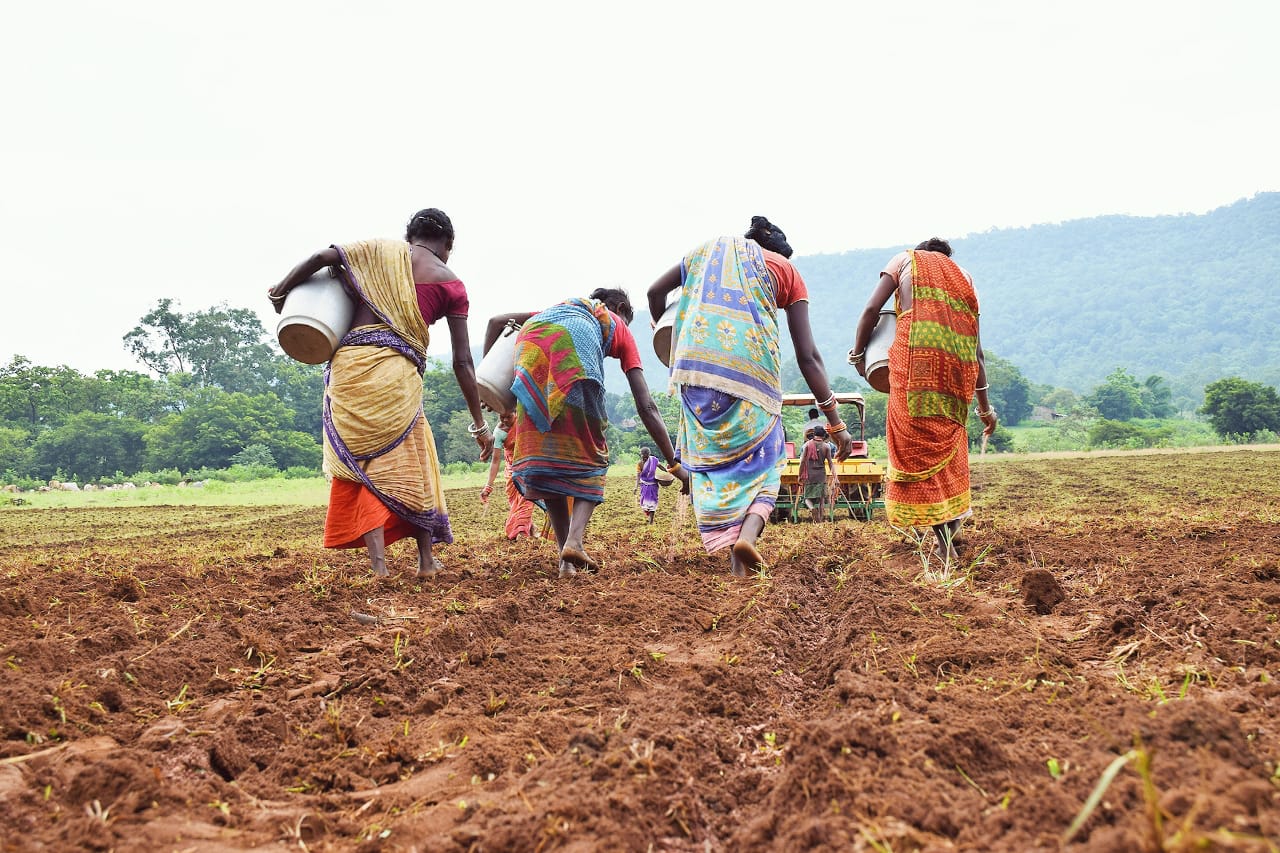
Maize is a staple crop that requires a limited amount of water and inputs, and earns farmers a profit, thanks to its growing demand as food and feed for livestock. Adivasi women farmers in India’s Odisha state are increasing their yields by applying improved maize intensification technologies.
The Cereal Systems Initiative for South Asia (CSISA), led by the International Maize and Wheat Improvement Center (CIMMYT), is providing technical support to the Association for Development Initiatives, which implements the Odisha Primitive Tribal Group Empowerment and Livelihood Improvement Program (OPELIP) and the Odisha State Department of Agriculture at Gudugudia in Mayurbhanj.
“CSISA’s technical support to the women, focusing on improved maize cultivation techniques, helped the women improve their understanding, their capacity and their yields,” said Wasim Iftikar, Research Associate at CIMMYT. Improved maize hybrids, precision nutrient management techniques and improved weed management practices have helped the women increase their yields. This year the group harvested more than 3,300 kg from seven acres of land.
“We never thought we could earn money and support our families through maize cultivation. This is an eye-opener for us. We are planning to increase the area of cultivation for maize and will convince our family members and other women to join us,” says farmer Joubani Dehuri.
To view a photo essay recognizing these women and their work in honor of International Women’s Day 2019, please click here: https://adobe.ly/2ED9sns
The Cereal Systems Initiative for South Asia (CSISA) is a regional initiative to sustainably increase the productivity of cereal-based cropping systems, thus improving food security and farmers’ livelihoods in Bangladesh, India and Nepal. CSISA works with public and private partners to support the widespread adoption of resource-conserving and climate-resilient farming technologies and practices. The initiative is led by the International Maize and Wheat Improvement Center (CIMMYT), implemented jointly with the International Food Policy Research Institute (IFPRI) and the International Rice Research Institute (IRRI). It is funded by the U.S. Agency for International Development (USAID) and the Bill & Melinda Gates Foundation.

 Capacity development
Capacity development